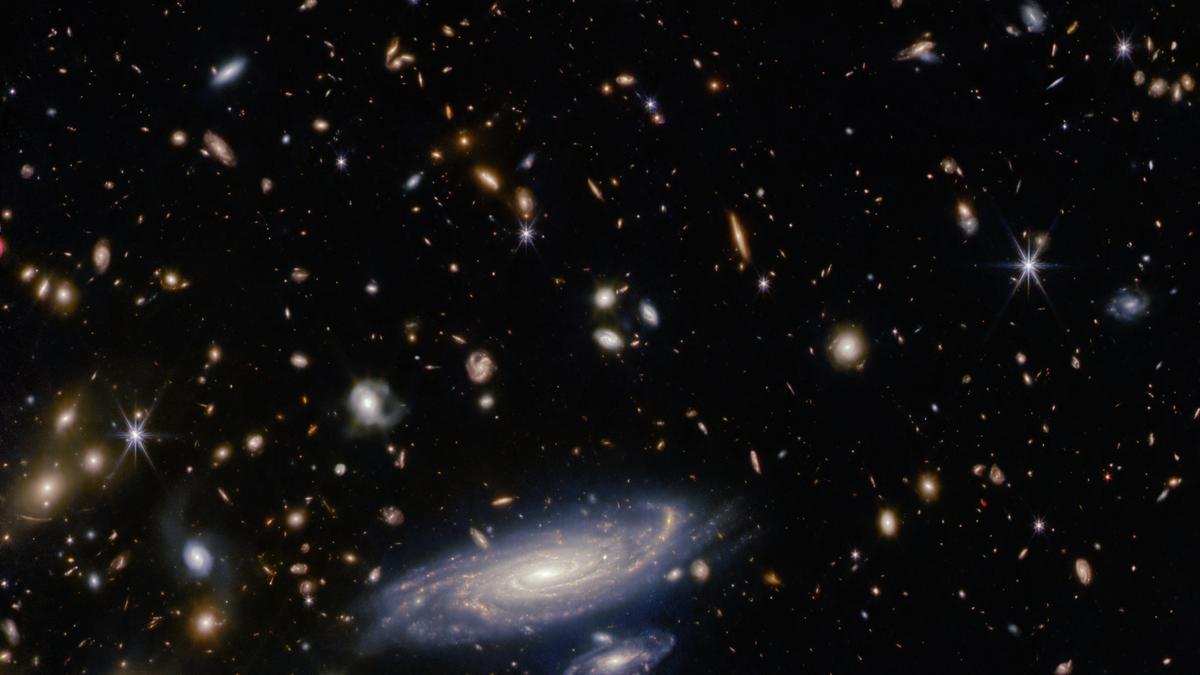
Indian group proposes radical new way to settle universe expansion dispute Premium
The Hindu
Scientists from ICTS Bangalore have proposed a new way to measure the Hubble constant, which could help resolve a crisis in cosmology about how fast the universe is accelerating, using lensed gravitational waves observed by the next generation of LIGO observatories.
About 13.8 billion years ago, a really small, really dense, and really hot spot lying beyond spacetime began to expand. Its expansion and cooling – in an event that scientists have called the Big Bang – produced the universe as we know it.
The universe continued to expand, at first really rapidly before slowing down to a great degree. Then, about five or six billion years ago, dark energy – an unknown and largely uncharacterised form of energy – accelerated its expansion again.
Scientists confirmed that the universe was indeed expanding at an accelerating rate in 1998.
In 1929, American astronomer Edwin Hubble provided the first mathematical description of the universe’s expansion in an equation called Hubble’s law. Yet the precise rate of this expansion, called the Hubble constant, remains a point of crisis in modern cosmology.
In a move that could eventually help resolve this crisis, researchers at the International Centre for Theoretical Sciences (ICTS), Bengaluru; the Inter-University Centre for Astronomy and Astrophysics (IUCAA), Pune; and the University of California, Santa Barbara (UCSB) have proposed a new way to determine the Hubble constant.
Their study was published in the journal Physical Review Lettersin June.
While the study’s predictions may only be tested in the 2040s, their method “will provide an independent measurement of cosmological parameters,” Jasjeet Singh Bagla, an astrophysicist at the Indian Institute of Science Education and Research (IISER), Mohali, said.

Under the NBS, newborns are screened for communication disorders before they are discharged from the hospital. For this, AIISH has collaborated with several hospitals to conduct screening which is performed to detect hearing impairment and other developmental disabilities that can affect speech and language development. The screening has been helping in early intervention for those identified with the disorders, as any delay in the identification poses risk and affects successful management of children with hearing loss, according to AIISH.












